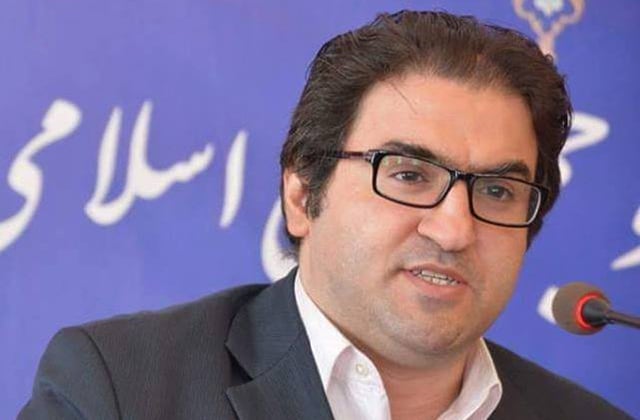Isolation from regional energy market prevented the possibility of observing valuable energy projects with Armenia: Vali Kaleji

Interview with Vali Kaleji, Research Fellow at the Center for Strategic Research (CSR), Tehran.
Mr. Kaleji it’s been a rather long period that Iranian president Hassan Rouhani’s possible visit to Armenia is being touched upon. To Your mind, which factors block this visit and the meeting between the presidents of Armenia and Iran?
After being elected as the president of Iran in 2013, President Serzh Sargsyan participated in the inauguration ceremony of the elected President Hassan Rouhani on August 4, 2013 and Armenia’s former Prime Minister Hovik Abrahamyan visited Tehran on October 20, 2014.
On the other hand, several top Iranian Officials visited Armenia. On January 27, 2015 Mohammad Javad Zarif, Minister of Foreign Affairs of Iran, paid a two-day visit to Armenia and Iran’s first Vice-President Eshaq Jahangiri visited Yerevan on October 14, 2015.
Indeed, Iran-Armenia Joint Economic Commission Meetings held and considered bilateral relations between two countries in the field of transportation, energy, including gas and electricity, environment, information technology and tourism.
All of aforementioned meetings show that Armenian-Iranian relations are at a high level and continue to develop in an atmosphere of mutual trust. As Vice-President Jahangiri, mentioned, “The Republic of Armenia has its own place in the foreign policy of the Islamic Republic of Iran, and we have no limitations in terms of developing our relations with Armenia.” Therefore, I don’t think there is any factor that may impact on the meeting between the presidents of Armenia and Iran. I hope that upcoming visit of Iranian President Hassan Rouhani may lead to expanding bilateral relations between Iran and Armenia.
Particularly after the big agreement around Iran’s nuclear deal, the necessity and possibility of realization of total potential of Armenia-Iran relations are being much touched upon. It was finally confirmed that Iran’s president Hassan Rouhani will visit Armenia in mid-December. What results should be anticipated from that meeting?
Joint Comprehensive Plan of Action (JCPOA) between Iran and the P5+1 group of countries crated a great capacity for improving ties with neighbors, which is a high priority for Iranian foreign policy. This circumstance is a great opportunity for realization of total potential of Armenia-Iran relations. In this regard, visa-free travel between the two neighboring states is very important for expanding people to people contacts and trade cooperation.
It seems that during the upcoming visit Iran-Armenia Joint Economic Commission Meeting will be held, that will consider bilateral relations between the two countries in the field of transportation, energy, including gas and electricity, environment, information technology and tourism. In this regard, visa-free travel between the two neighboring states is very important for expanding people to people contacts and trade cooperation.
What does Iran anticipate from Armenia-Iran relations and in which fields?
It seems that during his meetings with the Armenian leader IRI President will discuss bilateral cooperation and will exchange views on regional and international challenges, especially current complex situation in Iraq and Syria. Indeed, Armenia is the only South Caucasian state joining the Eurasian Economic Union (EEU) in 2015 and may play a connecting role and bridge between Iran and EEU.
Armenian officials have stressed the perfect place of Armenia for linking Iran with the EEU and declared that the Union accepted Yerevan’s idea to study the scheme aimed at creation of a Free Trade Area (FTA) between Iran and Armenia. In this framework, as the key missing link in the International North–South Transport Corridor, the “Southern Armenia Railway” would create the shortest transportation route from the ports of the Black Sea to the ports of the Persian Gulf. Also, Iran and Armenia are working to reinforce energy cooperation especially in the fields of natural gas and electricity.
Besides, the development of Armenia-Iran-Georgia-Russia four-party cooperation contributes to deepening of regional integration, raising energy stability and strengthening of regional security. Therefore, I think there are plenty of grounds for the two countries to strengthen cooperation in a variety of fields.
There are more global programs discussed in the context of Armenia-Iran relations, which refer to the possibilities of transmitting Iranian gas through Armenia and Georgia to Europe. How interesting is this perspective to Iran?
Unfortunately, during the past two decades pursuit of the policy, which seeks to exclude Armenia from the regional energy market, has prevented this valuable capacity to be properly taken advantage of it. Therefore, any participation of Armenia in energy plans is inherently valuable.
As you know, during a three-day visit to Iran, Levon Yolyan, Minister of Energy and Natural Resources of Armenia, had a meeting with the Iranian Oil Minister Bijan Zanganeh. After this meeting it was announced that Iran plans to supply natural gas to Europe through the territory of Armenia and Georgia in the future. I consider, if Iran, Armenia and Georgia could reach to a practical formula, it will be possible to transmit Iranian gas through Armenia and Georgia to Europe. Of course, implementing of this plan needs the support of European Union.
By Araks Martirosyan

























